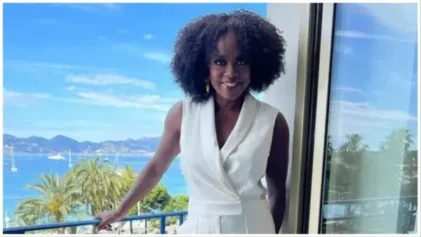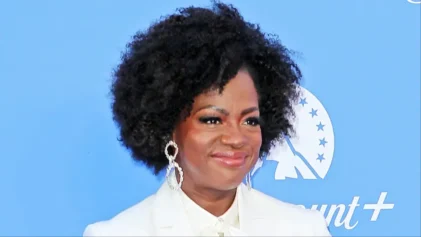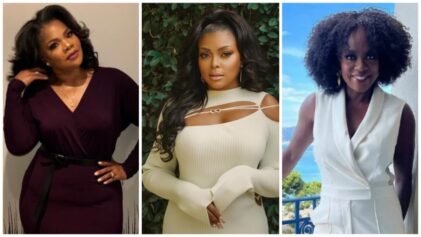Fresh off her rousing speech at the Women’s March, Viola Davis continues to take a stand for ladies equality — especially for Black women.
The “How to Get Away with Murder” star sat down with British journalist Tina Brown for the annual Women in the World Los Angeles Salon Tuesday, Feb. 13 and Davis didn’t hold back on her thoughts.
When asked if she thought the #MeToo movement was sustainable, at around the 1:31:10 mark, Davis refused to give time to the word “diversity” as it relates to marginalized voices.
“Yeah, it could be [a thing for the moment] if you make it that. The power is in you,” she says. “In terms of inclusion — and I won’t say diversity because the only reason people are talking about diversity is because it was a trending topic last year — it was a hashtag, OK?
“Inclusivity has to start with studio heads who greenlight movies,” she continues. “You can have 14 movies that a studio is developing. And [of] 14 of ’em, 99 percent of the cast is Caucasian. You may have someone of color in the background. And then, you’ll have the movies that are being greenlit and they won’t consider someone Black or Hispanic for one of the roles. But it’s always a best friend, or it’s always, ‘We were gonna have a white man in this role, but we’re gonna have you in this role.’ … They won’t consider you for a role they wrote for Sandra Bullock or Reese Witherspoon.”
Davis slammed the notion studios have that a Black-led film won’t make money overseas or that the 18-34 white male demographic won’t tune in to a TV show led by a Black 52-year-old woman, resulting in lost advertising revenue.
“If you’re dedicated to change, let it cost you something!” she exclaims.
The Oscar-winner also discussed her issue with having a comparable career to fellow actresses Sigourney Weaver, Julianne Moore and Meryl Streep, yet she doesn’t earn as much as they do nor does she get the same opportunities.
“People say, ‘You’re a Black Meryl Streep … We love you. There is no one like you,’” she says. “OK, then if there’s no one like me, you think I’m that you pay me what I’m worth.”
She also admitted she’s done making the most of third-rate characters.
“It’s gotten to the point [where] I’m no longer doing that,” she says. “I’m not hustling for my worth. I’m worthy. When I came out of my mom’s womb, I came in worthy.”
And Davis realizes the problems with equality aren’t just limited to actresses her age. She noted the disparity between younger stars’ opportunities, too.
“You’ll have a Shailene Woodley, who’s fabulous,” she says. “And she may have had 37 magazine covers in one year. 37! And then you’ll have someone — a young actress of color who’s on her same level of talent and everything. And she may get four. And there is [the] sense in our culture that you have to be happy with that.”


